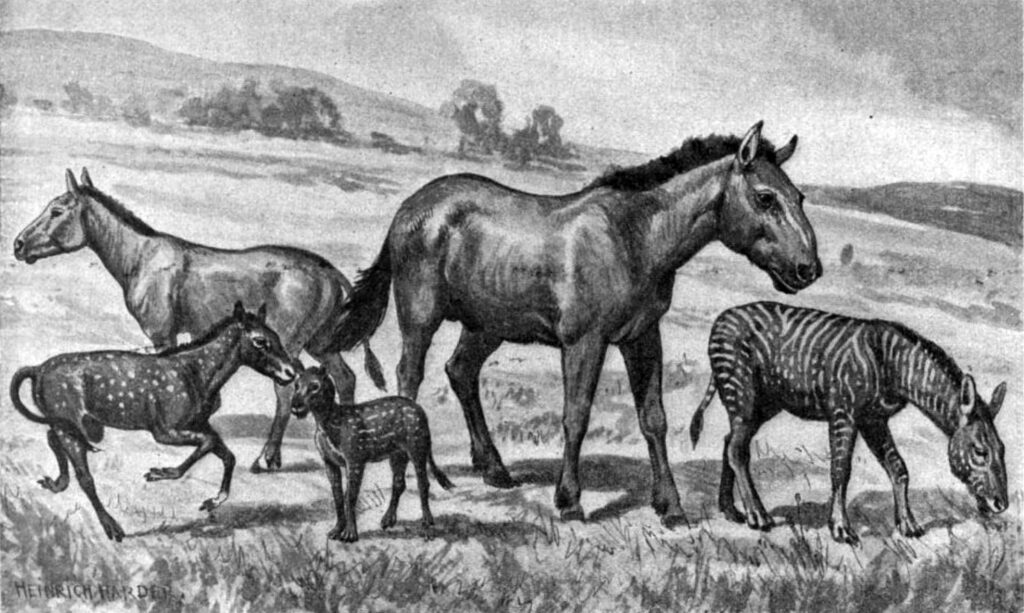Georg Christoph Lichtenberg? Stendhal? Marie-Henri Beyle? W. H. Auden? Bayard Taylor?

Question for Quote Investigator: A German humorist who lived in the 18th century thought the Dutch language sounded ridiculous as indicated by the following quip:
A donkey appears to me like a horse translated into Dutch.
Would you please help me to find the name of the humorist together with a citation?
Reply from Quote Investigator: German physicist and satirist Georg Christoph Lichtenberg died in 1799. His writings were collected and published shortly after his death. The second volume in 1801 contained the following saying in German. One possible translation into English has been included below. Boldface added to excerpts by QI:1
Der Esel kommt mir vor wie ein Pferd ins Holländische übersetzt.
The donkey seems to me like a horse translated into Dutch.
The quip was circulating in English by 1879 when it appeared in the book “Studies in German Literature” by Bayard Taylor:2
I think even our extravagant American idea of humor will appreciate his remark that “a donkey is simply a horse translated into Dutch;” . . .
Below are additional selected citations in chronological order.
In 1880 Taylor’s book was reviewed in “The Spectator” of London and the jest was reprinted.3
In 1954 translator Robert Sage published “The Private Diaries of Stendhal (Marie-Henri Beyle)”. Beyle’s diary entry dated July 6, 1807 contained the following:4
As ass, said Lichtenberg, is a horse translated into Dutch. Dutch is the height of the ridiculous for a German ear.
In 1970 the poet W. H. Auden published “A Certain World: A Commonplace Book” which contained the following entry:5
The Donkey
A horse translated into Dutch.
G.C.LICHTENBERG
In 2001 “The Penguin Dictionary of Epigrams” compiled by M. J. Cohen included the following entry:6
A donkey appears to me like a horse translated into Dutch.
Georg Christoph Lichtenberg The Lichtenberg Reader. Aphorisms 1779–88
In conclusion, Georg Christoph Lichtenberg deserves credit for this saying which appeared originally in German. QI does not know precisely when Lichtenberg crafted the expression. It appeared in a posthumous collection of his writings in 1801.
Image notes: Public domain depiction of the ancient horse Equus Scotti and other prehistoric animals used in the 1914 book Tierwanderungen in der Urwelt.
Acknowledgement: Quotation expert Nigel Rees pointed out that this saying was a thematic precursor of the popular statement “A camel is a horse designed by a committee”. This observation inspired QI to investigate this statement and create an article. Rees and other researchers knew that Georg Christoph Lichtenberg crafted this saying.
Update History: On May 10, 2024 the format of the bibliographical notes was updated. Also, the full article was placed on this website.
- 1801, Georg Christoph Lichtenberg’s Schriften nach dessen Tode aus den hinterlassenen Papieren gesammelt und herausgegeben (Georg Christoph Lichtenberg’s writings collected and published after his death from the papers he left behind), Edited by Ludwig Christian Lichtenberg and Friedrich Kries, Volume 2, Quote Page 378, Göttingen in der Dieterichschen Buchhandlung. (Google Books Full View) link ↩︎
- 1879, Studies in German Literature by Bayard Taylor, Chapter 12: Richter, Quote Page 391, G. P. Putnam’s Sons, New York. (Google Books Full View) link ↩︎
- 1880 April 24, The Spectator, Bayard Taylor’s Studies in German Literature, Start Page 531, Quote Page 532, Column 1, John Campbell, London. (Google Books Full View) link ↩︎
- 1954, The Private Diaries of Stendhal (Marie-Henri Beyle), Edited and Translated by Robert Sage, Chapter: The German Adventure, Date: July 6, 1807, Quote Page 262, Doubleday & Company, Garden City, New York. (The name “Lictenberg” was spelled as “Lichtemberg” in the text) (Verified with scans) ↩︎
- 1970, A Certain World: A Commonplace Book by W. H. Auden, Section: Donkey, Quote Page 118, A William Cole Book: Viking Press, New York. (Verified with scans) ↩︎
- 2002 (2001 Copyright), The Penguin Dictionary of Epigrams, Compiled by M. J. Cohen, Topic: Animals and Other Creatures, Quote Page 13, Penguin Books, London. (Verified with scans) ↩︎